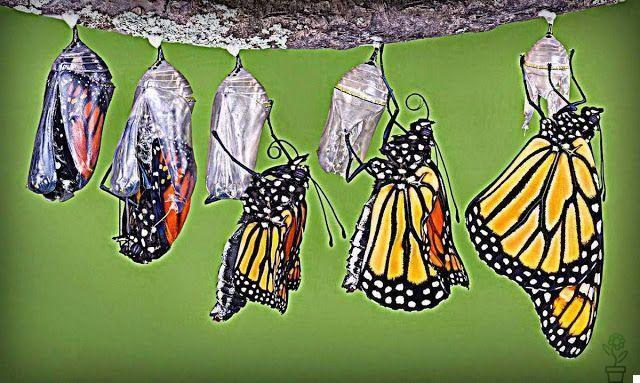 “One day a man encountered a butterfly cocoon on his way and brought it home to protect it. He put it in a safe place, but soon realized that there was a small hole in the surface, looked closer and saw that the little butterfly was struggling to get out of the cocoon.So he spent several hours watching the butterfly struggling to try to pass the her little body through that little hole. However, suddenly the butterfly stopped struggling, it looked like it had given up, or maybe it got stuck. The man felt very sorry for the little butterfly so very gently, he enlarged the hole on the cocoon to help the butterfly get out.
“One day a man encountered a butterfly cocoon on his way and brought it home to protect it. He put it in a safe place, but soon realized that there was a small hole in the surface, looked closer and saw that the little butterfly was struggling to get out of the cocoon.So he spent several hours watching the butterfly struggling to try to pass the her little body through that little hole. However, suddenly the butterfly stopped struggling, it looked like it had given up, or maybe it got stuck. The man felt very sorry for the little butterfly so very gently, he enlarged the hole on the cocoon to help the butterfly get out.Finally, the butterfly came out, but its little body was swollen and the little wings were
wither. The man thought this was normal and continued to watch, expecting the swelling to go away and the butterfly to finally open its wings taking flight. But this did not happen, the poor butterfly could only drag itself around. He never had a chance to fly ".
What the man of the story did not know was that the struggle of the butterfly to get out of the cocoon was necessary and functional for the body fluids to pass to its wings. During this process a fluid called hemolymph is pumped from the body into the butterfly's wings, and this allows the wings to gradually stretch until they reach the appropriate size. Only in this way will the butterfly be able to fly. Therefore, in an attempt to help her, the man deprived the butterfly of the ability to fly.
Sometimes, if we want to help someone, we better step aside
This fable tells us that some obstacles are sometimes necessary, because they help us become resilient people. Throughout life, each of us must make our own mistakes to learn from them and grow. If we intervene and solve the person's problems, we are taking away from him a learning opportunity that could be valuable to him in the future. Therefore, in some cases, the best help is to step aside.
As a general rule, life presents us with various obstacles that challenge our abilities, but, at the same time, force us to grow and develop our potential. Each stage of our existence presents us with different challenges that prepare us for the next stage. However, if there is always someone who solves problems for us, we run the risk that when we are left alone we will not have the necessary resources to tackle this particular problem and we will be overwhelmed.
For example, the mother who always stands up for her child when she has problems with other children is doing him a favor in the short term, but ultimately, it prevents him from developing his social skills, so when he grows up, he will be an adult with a low Emotional Intelligence and with difficulty in relating to others.
Likewise, there are situations that do not require our direct intervention, but simply our emotional support. There are problems that we cannot solve for others, but we can support them by standing by their side. In fact, so much so that we can love a person, we cannot take responsibility for his suffering or process the pain in his place. The person has to do it himself.When should you intervene?
If a person always has someone who solves his problems he will become an emotional paralytic. A life without obstacles does not help to grow, in fact, it does not even allow us to know ourselves well, discover who we really are and how far we can go when we find ourselves in extreme situations. Taking a shortcut, allowing others to solve our problems, is almost never the best way to go about life. It is true that we will finish before the others, but if the next race is tougher, we will stop halfway because we will not be prepared.
Therefore, do not do for others what they can (and should) do for themselves. If you behave in an overprotective way you will contribute to making sure that the person never spreads his wings and you will deprive him of one of the most important treasures: to know and test his potential.
Furthermore, always being available to others to solve their problems even at the cost of neglecting our needs can be a double-edged sword, because in this way we help create selfish people who will expect us to always be available to them. Therefore, it is even possible that they do not even know how to appreciate what we do for them.The secret is to help someone when they really need, when their psychological or physical resources do not allow them to continue. But even so, help should never consist in solving the problem but rather in offering the tools for the person to solve it himself or show him the way. Remember that if you give a man a fish, you feed him for a day, but if you teach him to fish, you feed him for life. later you will be grateful. In the meantime, don't let him lack your emotional support.
- 25


























